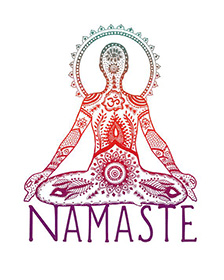A serious subject, what is the power of truth and truth. Master Sri Sri Anandamurti’s philosophy inspires many, and I was no exception. After studying his autobiography about three years ago, I decided on an experiment – for a whole week to give up lying completely, and to speak only the truth. A week may sound too easy, but I only lasted two days!
On the third day I had a conversation with a man who asked me if I really do yoga every day. It is worth specifying that I wanted to make a pleasant impression on my interlocutor, but I was not going to lie. But I answered in the affirmative, although at that time in my life I have not often practiced yoga.. Only a couple of minutes passed, and I admitted my lie (by the way, it wasn’t that hard).
But an important thing happened – the experiment began to yield results – I clearly realized in what networks of unspoken lies and falsity I was living, while refraining from misrepresentation is quite easy. There are many examples – I used a mask of indifference to conceal my desire to get this or that job, pretended to be benevolent to the person who irritated me, etc.
Of course, it is possible to find convincing excuses for such “everyday lies,” but still many people suffer from the consequences of every word of untruth – they begin to feel distrust and doubt about themselves, become cynical, or suspect others of lying.
In general, if you want to spend a week very informative for yourself – try to give up lying, and you will be surprised at the results. Personally, in the course of the experiment I encountered many masks covering up dishonesty. It turned out that telling the truth at all times is harder than it might initially seem.
Tell it like it really is
What truthfulness really is has been talked about and argued about for more than a hundred years. There are only three main points of view in this world discussion:
Materialistic. This approach is that the truth should always be told, but not when it is advantageous to lie/falsify the facts. The materialistic lie theory has many admirers.
Idealistic. Truth is an unconditional value, and a yogi should never be untruthful under any circumstances. This point of view is the easiest to understand, so it has a large number of supporters. However, it is not so easy to hold an idealistic position in practice.
Balance. Proponents of balance should be able to recognize with increased diligence. Those who wish to find the golden mean in matters of truth and falsehood not only understand the great value of sincerity, but also recognize the possibility of the destructive power of the consequences of truth. That is, truth must be balanced with justice, goodness, absence of violence, and love of peace.
Any lie requires the expenditure of a considerable amount of energy for its perfection, for every liar strives to make sure that his version has no flaws. At the same time, lying contributes to our madness – anyone is familiar with the discomfort and even strange feeling of cognitive dissonance that can be experienced when information is distorted or withheld. Lies become a barrier between us and reality.
Why, then, would a person who honors the principles of morality and ethics choose insincerity at all, if the consequences of lying bring so much destruction to social life and spirituality?
If the truth is too hard for the other person, then lying can be considered moral. Sometimes the unvarnished truth is actually a manifestation of aggression, overt or disguised. Surely you can recall moments when the truth has been truly bitter from revelations that destroy trust or from unpleasant revelations made in a fit of anger.
A person may choose to be untruthful if sincerity can interfere with adherence to equally important principles and values. In the Mahabharata, the great Indian treatise, we can read about Krishna ordering Yudhishthira to lie during a decisive battle. To lie in order to lower the morale of the enemy (in this case, warlord Dron, by informing him of his son’s death). That is, from Krishna’s point of view, all means are good in the struggle against the great evil, although orthodox Hindus consider Krishna the embodiment of divine truth in human form. In the moment described, lying has served justice and peace, and is therefore justified.
On the basis of all this, each person must find that golden mean, that balance between sincerity and adherence to the principles of morality. If you want to take this path, the rule of “the four gates of speech,” that is, the four questions for self-testing, will help you:
- Is it really true?
- If you say it, is it an act of kindness?
- Is there a need to say it?
- Is this really the right time to do it?
These questions will help you prioritize those moments when it’s hard to decide between keeping silent and telling the truth.
Facing Lies
Accurate adherence to the truthfulness of the facts is less than a commitment to

to unquestioned truth. Unconditional truth involves not only refusing to distort the facts of the conversation, it requires our transparency to ourselves. If you want to follow unconditional truth, you must be willing to take a hard look at facets of your personality that you have been afraid to scrutinize.
To look without self-blame and bitterness, ready to face the truth, overcoming the veil of your own falsity. Only if you do this will it be possible to discover the limitless possibilities of the practice of sincerity.
Truth is power; it is the true teacher of wisdom. When you choose to follow it everywhere, constantly practicing the “four gates of speech” rule, truth emerges in subtle shades, filling us with wisdom. Beginning to pursue truth with greater vigor, almost everyone stands to gain.
Sri Sri Anandamurti believed that it is through sincerity that one can gain such power that all our words become truth. No, he does not mean that everyone becomes a magician, turning deception into reality. I think he is talking about the great power of speech, which is backed not only by the truthfulness of the facts, but also by the truth that is perceived by us, enlightens us and reflects our true essence.
With love, Maria Shakti






